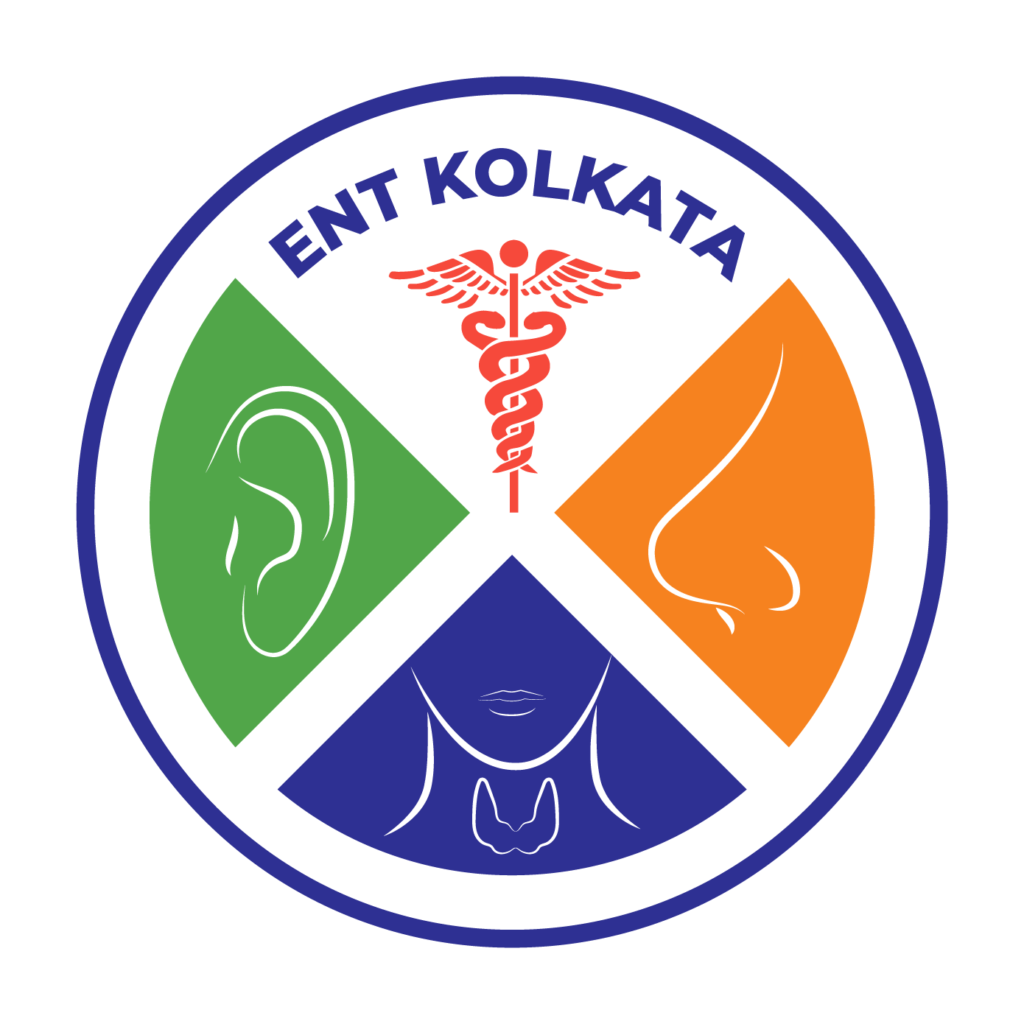Disclaimer: This article is for educational purposes only and does not constitute medical advice. Always consult with a qualified healthcare professional for diagnosis and treatment of any medical condition.
Winter in Kolkata may be mild compared to other regions, but it brings a unique set of challenges for your ear, nose, and throat health. If you’re experiencing persistent nasal congestion, sore throat, or ear discomfort during the colder months, you’re not alone. ENT Doctor in Kolkata observe a significant increase in ENT-related complaints during winter.
many residents find themselves dealing with uncomfortable ENT symptoms. This comprehensive guide will help you understand common winter ENT conditions, learn effective home remedies, and know when it’s time to consult an ENT Specialist in Kolkata.
Understanding Winter ENT Problems: Symptoms Prevention & Care – ENT Doctor in Kolkata
Understanding Winter’s Impact on ENT Health
Why Does Winter Affect Your ENT System?
Your ear, nose, and throat are interconnected systems that serve as your body’s first line of defense against airborne pathogens. ENT Doctor in Kolkata observe that during winter, several factors can affect these structures.
Dry Air: Kolkata’s winter air lacks moisture, and when combined with indoor heating systems, it dries out the protective mucous membranes in your nose and throat. This drying effect reduces your body’s natural ability to trap and eliminate bacteria and viruses.
Temperature Fluctuations: Kolkata experiences significant temperature variations between morning, afternoon, and evening during winter. These rapid changes stress your respiratory system and can trigger inflammation.
Increased Air Pollution: Winter months in Kolkata see elevated pollution levels due to reduced air circulation, vehicular emissions, and smoke from various sources. Air pollution directly irritates nasal passages and can trigger inflammatory responses.
Indoor Crowding: People spend more time indoors during winter, increasing exposure to viruses and bacteria that cause respiratory infections. This close contact in poorly ventilated spaces facilitates the spread of infections.
Common Winter ENT Conditions in Kolkata
Acute Sinusitis – The Winter Headache Maker
Sinusitis, or inflammation of the sinus cavities, is one of the most common winter complaints. Your sinuses are air-filled spaces in your skull that connect to your nose through small channels. When these become blocked and filled with fluid, bacteria can grow, causing infection.
What Happens Inside Your Sinuses?
Most acute sinusitis cases are caused by viruses like the common cold, while a smaller portion involves bacterial infections. Acute sinusitis symptoms typically last less than a month.
Recognizing Sinusitis:
- Facial pain or pressure, especially around your forehead, cheeks, and between your eyes
- Thick, discolored nasal discharge
- Nasal congestion making it difficult to breathe through your nose
- Reduced sense of smell and taste
- Headache that worsens when bending forward
- Post-nasal drip causing throat irritation
- Fatigue and general feeling of being unwell
- Low-grade fever in some cases
Why It’s Common in Winter: Cold air irritates sinus membranes, while pollution particles trigger inflammatory responses. The combination of dry air and indoor heating further compromises your sinuses’ natural drainage system.
Pharyngitis and Tonsillitis – That Painful Sore Throat
Pharyngitis (inflammation of the throat) and tonsillitis (inflammation of the tonsils) are extremely common during Kolkata’s winter season. Your tonsils act as the body’s first defense against germs entering through your mouth, but this also makes them vulnerable to infection.
Understanding Throat Infections: Most sore throats are caused by viruses and resolve on their own. However, bacterial infections require antibiotic treatment to prevent complications.
Common Symptoms:
- Sharp, scratchy pain in the throat, especially when swallowing
- Red, swollen tonsils, sometimes with white or yellow patches
- Swollen, tender lymph nodes in your neck
- Hoarse or muffled voice
- Fever and body aches
- Difficulty eating or drinking due to pain
Transmission Factors: Throat infections spread through respiratory droplets when an infected person coughs or sneezes. Winter’s crowded indoor spaces and close contact make transmission more likely.
Otitis Media – The Winter Ear Infection
Middle ear infections, medically termed otitis media, occur when viruses or bacteria from your throat travel through the Eustachian tube to your middle ear. Ear infections are most common during fall and winter months.
The Connection Between Colds and Ear Infections: Your Eustachian tubes connect your middle ear to the back of your throat, helping to equalize pressure and drain fluid. When you have a cold, these tubes can become swollen and blocked, trapping fluid in the middle ear where bacteria can multiply.
Key Indicators:
- Ear pain ranging from mild to severe
- Feeling of fullness or pressure in the ear
- Temporary hearing difficulties or muffled hearing
- Fluid draining from the ear if the eardrum ruptures
- Balance problems or dizziness
- Fever and irritability
- Trouble sleeping
Who’s Most Affected? While ear infections are more common in children due to their shorter, more horizontal Eustachian tubes, adults can also develop ear infections, especially following upper respiratory infections.
Rhinitis – The Constant Runny Nose
Rhinitis involves inflammation of the nasal passages and can be either allergic or non-allergic. During winter, both types can worsen due to environmental factors specific to Kolkata.
Types of Winter Rhinitis:
- Allergic Rhinitis: Triggered by indoor allergens like dust mites, pet dander, and mold
- Non-Allergic Rhinitis: Caused by irritants like pollution, smoke, and strong odors
Typical Symptoms:
- Frequent sneezing episodes
- Clear, watery nasal discharge
- Nasal congestion and stuffiness
- Itchy nose, eyes, or throat (more common with allergic rhinitis)
- Post-nasal drip
Winter Triggers in Kolkata: Dust accumulation in closed spaces, mold growth in damp areas, and outdoor pollution particles all contribute to rhinitis symptoms during winter months.
Stay Hydrated – Critical for Recovery
Adequate fluid intake is essential for maintaining healthy mucous membranes and supporting your immune system during winter.
Daily Hydration Guidelines:
- Drink plenty of water throughout the day
- Increase intake if you have a fever or excessive mucus production
- Include warm fluids like herbal teas, warm lemon water, and clear broths
- Avoid excessive caffeine and alcohol, which can dehydrate you
Why Hydration Matters: Proper hydration keeps mucus thin and easier to expel, prevents nasal passages from drying out, and helps your body fight infections more effectively.
Rest and Sleep – Let Your Body Heal
Your immune system works most effectively when you’re well-rested. Sleep deprivation can weaken your body’s ability to fight infections.
Rest Guidelines:
- Get adequate sleep nightly
- Take daytime naps if needed
- Elevate your head while sleeping to reduce nasal congestion and promote drainage
- Create a comfortable sleeping environment with optimal humidity
Humidity Management
Maintaining proper indoor humidity levels prevents the drying of mucous membranes that can worsen ENT symptoms.
How to Add Moisture:
- Use a humidifier in your bedroom
- Place bowls of water near heat sources
- Hang wet towels in your room
- Take a hot shower and breathe in the steam
What to Avoid During Winter ENT Problems
While treating winter ENT issues at home, certain things can worsen your condition:
Habits to Avoid:
- Smoking and exposure to secondhand smoke (irritates airways and reduces immunity)
- Alcohol consumption (dehydrates and weakens immune response)
- Using cotton swabs inside the ear canal (can push wax deeper and damage the eardrum)
- Overuse of decongestant nasal sprays (can cause rebound congestion after several days of use)
Environmental Irritants:
- Strong perfumes and fragrances
- Chemical cleaning products
- Smoke from incense or candles
- Excessive dust accumulation
Seek Immediate Medical Attention If You Experience:
Severe or Worsening Symptoms:
- High fever
- Symptoms persisting for an extended period without improvement
- Symptoms that initially improve but then worsen again
Breathing Difficulties:
- Severe difficulty breathing or shortness of breath
- Wheezing or chest tightness
- High-pitched breathing sound
Ear-Related Warning Signs:
- Severe ear pain that doesn’t improve with over-the-counter pain medication
- Severe dizziness or loss of balance
Throat and Sinus Red Flags:
- Inability to swallow liquids or saliva
- Drooling due to inability to swallow
- Severe headache or facial pain not relieved by pain medication
- Stiff neck along with fever
- Visual changes or swelling around the eyes
- White patches or pus on the tonsils
Signs of Complications:
- Confusion or altered mental status
- Extreme fatigue or weakness
- Dehydration (dark urine, dizziness, dry mouth)
Special Considerations for Different Age Groups:
Children:
- Excessive fussiness or irritability
- Pulling or tugging at ears
- Difficulty sleeping or feeding
- Symptoms in very young infants
Elderly:
- Any ENT symptoms in people with weakened immune systems
- People with chronic conditions like diabetes or heart disease
- Anyone taking immunosuppressive medications
Understanding Medical Treatment Options
For Chronic or Recurrent Issues:
- Allergy testing and immunotherapy
- Evaluation for structural problems like deviated septum or enlarged adenoids
Preventing Winter ENT Problems in Kolkata
Prevention is always better than treatment. Follow these strategies to reduce your risk of winter ENT issues:
Personal Hygiene:
- Wash hands frequently with soap and water
- Avoid touching your face, especially your nose, mouth, and eyes
- Cover your mouth and nose when coughing or sneezing (use your elbow, not your hands)
Environmental Measures:
- Monitor Kolkata’s air quality index and limit outdoor exposure during high pollution days
- Use appropriate masks when air quality is poor
- Keep your home clean and dust-free
- Vacuum regularly using quality filters
- Ensure good ventilation in your home when outdoor air quality is acceptable
- Avoid indoor irritants like strong perfumes, incense, and cleaning chemicals
Lifestyle Modifications:
- Maintain a healthy, balanced diet
- Exercise regularly to boost immune function
- Avoid close contact with people who have colds or flu
- Don’t share utensils, cups, or personal items
Temperature Protection:
- Wear scarves that cover your nose and mouth during cold morning and evening hours
- Keep your ears covered with earmuffs or a warm hat
- Dress in layers to adjust to temperature changes throughout the day
- After showering, dry your ears thoroughly
Strengthen Your Immune System:
- Ensure adequate vitamin D levels (especially important in winter)
- Stay physically active
- Get adequate sleep
Managing Pollution:
- Check the Air Quality Index before planning outdoor activities
- Use indoor air purifiers with quality filters if possible
Cultural Considerations:
- Winter festivities and gatherings increase infection transmission risk—maintain good hygiene practices
- If attending large gatherings, consider wearing a mask if you have any cold symptoms
Climate Adaptation:
- The temperature difference between air-conditioned spaces and outdoors can stress your system—dress in layers
- Public transportation can be a source of infection transmission—practice good hand hygiene
Living Well Through Winter
Winter doesn’t have to mean suffering from ENT problems. By understanding how cold weather affects your ear, nose, and throat, implementing preventive measures, and knowing effective home remedies, you can navigate Kolkata’s winter season comfortably.
If you find yourself dealing with persistent or severe ENT symptoms, don’t hesitate to consult an ENT Specialist in Kolkata. Early intervention can prevent complications and help you recover faster, allowing you to enjoy the pleasant aspects of winter without health concerns compromising your quality of life.
Frequently Asked Questions
Why do I get more colds and sore throats in winter?
Cold weather itself doesn’t cause infections—viruses do. However, winter creates conditions that facilitate virus transmission: people spend more time indoors in close contact, indoor air is drier, and some viruses survive better in cold, dry conditions.
When can I return to normal activities after an ENT infection?
For viral infections, you’re typically most contagious during the first few days of symptoms. Once your fever has been gone for a day without medication and your symptoms are improving, you can usually return to normal activities. For bacterial infections treated with antibiotics, consult your doctor about when it’s safe to return to activities.
